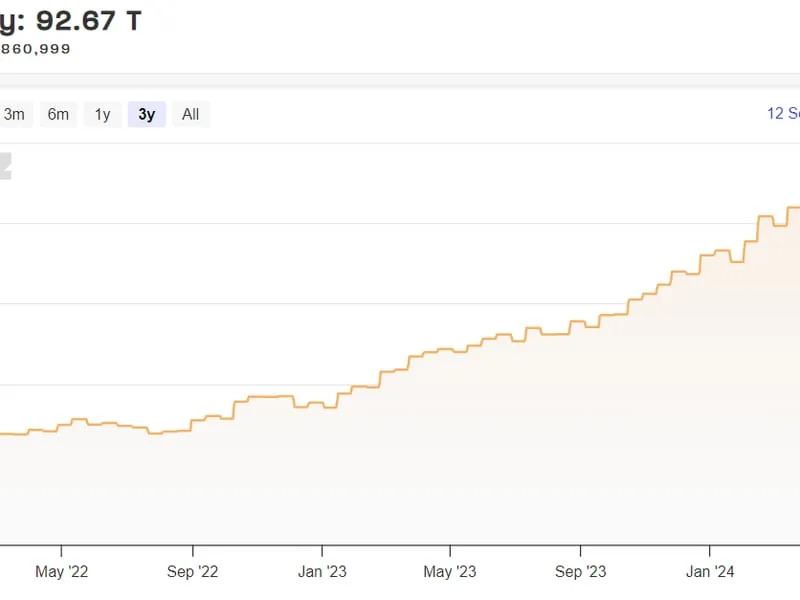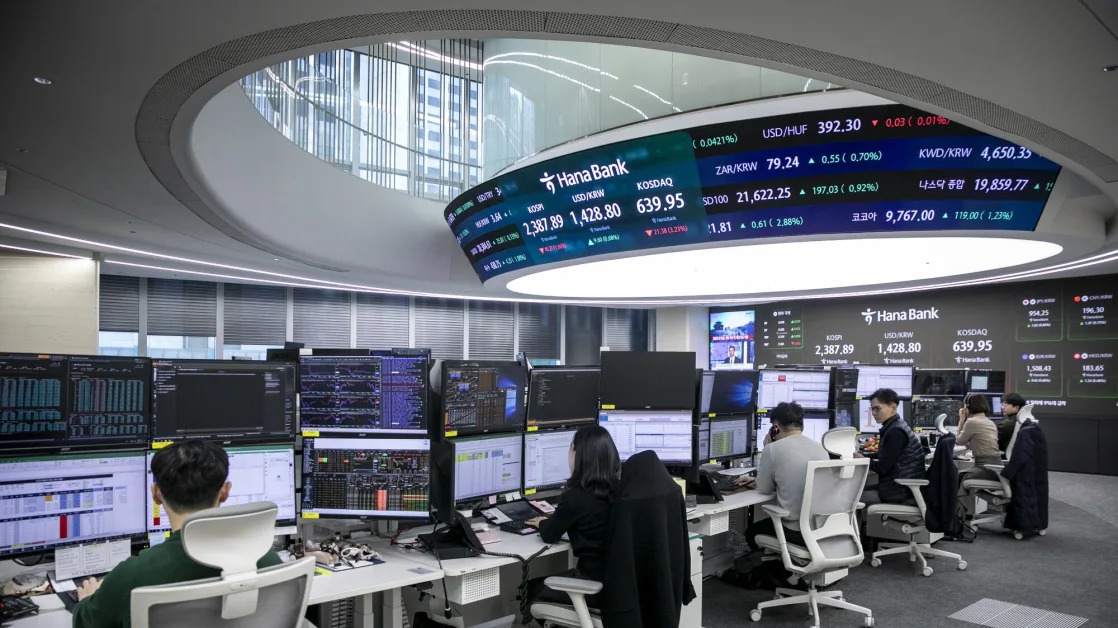(Bloomberg) -- Emerging-market stocks rallied as traders grew optimistic that the US economy will be able to avoid a recession while expecting the Federal Reserve to start cutting interest rates next month, which should provide a fresh boost to risk assets.
A gauge for developing world stocks rose in all but one session this week, capping gains of more than 2.8% in the span. Companies in Asia — including Taiwan Semiconductor Manufacturing Company, Samsung Electronics Co and Alibaba Group Holding — were the biggest contributors to the Friday’s advance.
While key US inflation data this week cemented bets for the Fed to start lowering borrowing costs as early as September, traders reevaluated their wagers after a string of subsequent readings underscored the strength of the economy. The US central bank cutting rates is expected to stoke demand for riskier assets.
Bullish investors, meanwhile, took advantage of the selloff last month and in early August to increase or establish positions in many asset classes including emerging-market equities and bonds, according to Rajeev De Mello, chief investment officer at Gama Asset Management.
“We are close to the beginning of a US easing cycle with a 25 basis point September cut pretty much baked in,” he said.
Emerging currencies also advanced on Friday, with South Africa’s rand outperforming. The currency rose for a ninth day in its longest run since 2011. The country’s assets have rallied since a business-friendly coalition took power two months ago and economic data began improving. Inflation has fallen since February, relieving the pressure on the central bank to keep interest rates high.
In Latin America, Brazilian assets got a temporary boost from stronger-than-expected economic activity data and President Luiz Inacio Lula da Silva’s comments that his pick to lead the nation’s central bank will raise interest rates if necessary. Gains largely faded throughout the session.
Lula’s remarks come after hawkish signs from local policymakers, easing concerns of a dovish pivot at a moment when inflation expectations remain unanchored. Central bank director Gabriel Galipolo, who’s expected by some to head the monetary authority later this year, has said a rate hike is on the table as all board members will do whatever it takes to bring inflation to the target.
“What has been supportive of Brazil local markets of late has been a sense that the BCB board is more unified in its messaging,” said Bret Rosen, economist and strategist for Latin America at EMSO Asset Management.
The extra yield investors demand to own emerging-market sovereign dollar bonds rather than US Treasuries has fallen back to 400 basis points after widening earlier in August, according to JPMorgan Chase & Co. data.
--With assistance from Leda Alvim and Wojciech Moskwa.






